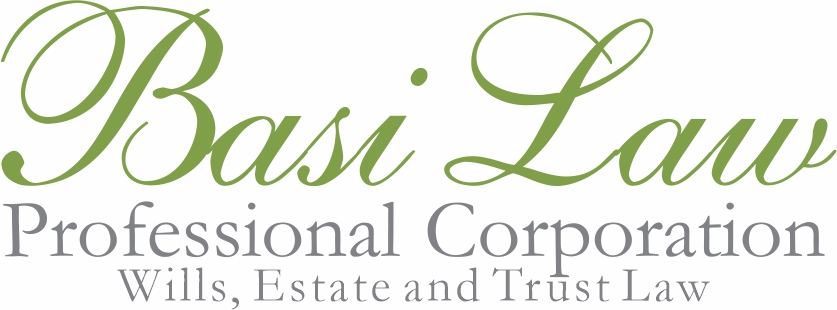Ok – maybe it doesn’t have quite the same ring as “Death of a Salesman” – but for estate planning nerds like myself it’s an issue to ponder. For example, I am the joint subscriber of two individual RESPs, one for each of my children. My husband is the other subscriber. If I die, my husband will continue as the sole surviving subscriber (say that 10 times fast) – and, being a smart accountant, he will continue contributing to the RESP annually and sticking to “the plan”.
However, what if my husband and I both die in a common accident? (Yes, my job requires a gruesome imagination). What would happen to the RESP?
An RESP is essentially a creation of the Canadian Income Tax Act (the “ITA”), with additional provisions added by the contract entered into between the financial institution “promoting” the RESP and the subscriber(s). I managed to find a copy of the terms and conditions of my TD Mutual Funds RESP from 11 years ago – there is no guarantee, of course, that your RESP contract would have similar terms and conditions.
First of all, my contract has a provision indicating that the terms of the contract are binding on the “heirs, executors and administrators of the Subscriber”. Due to this clause, it appears that the RESP contract does not come to an end by virtue of the death of the subscriber(s). So, since the RESP continues after the subscriber’s death, who is in charge at that point? Under my contract, only the subscriber is permitted to direct any payments to be made out of the RESP. Who would the subscriber be once both my husband and I are dead?
My contract somewhat helpfully defines a subscriber as including:
“after the death of a Subscriber under the Plan, any other person (including the estate of the Subscriber) who acquires the individual’s rights as a Subscriber under the Plan or who makes contributions into the Plan in respect of the Beneficiary…”
Most RESP contracts would likely include this definition, as a similar provision is found in the ITA.
Based on this definition, it appears that my executor, or anyone else, can theoretically become a subscriber by simply contributing to the RESP. Why does this concern me? I’m not too worried about a subscriber’s ability to withdraw contributions from the RESP, as my contract provides that a subscriber is only entitled to a refund of his own contributions (and not, for example, a refund of the contributions I made before my death).
However, my contract also provides that any subscriber can withdraw an “accumulated income payment” from the RESP. In other words, if there is income left in the RESP and it is clear that the income will not be used to assist a beneficiary with their education, then any subscriber can withdraw the income, even if it does not relate to that subscriber’s contributions.
Even if no contribution is made to the plan after my death, the person who “acquires” my subscriber rights is also a subscriber. How does someone “acquire” my subscriber rights after my death?
If there is no RESP provision in my will, my subscriber rights would fall into the residue of my estate, and thus be “inherited” by my residuary beneficiaries. In the case where my husband is deceased, my residuary beneficiaries are my minor children, and the residue of my estate is held in trust by my executor for my children until they reach a certain age. As a result of these provisions, my executor would hold my subscriber rights in trust for my children. Once my children’s trusts come to an end (eg when they turn 30), the remainder of the trust property, including the subscriber rights, would be paid and transferred to them.
I am somewhat concerned about this analysis for many reasons – such as:
What if a child becomes the subscriber of his own RESP at the age of 18 or 21 (as determined by the provisions of the original subscriber’s will) and can therefore pull large amounts of money out of the plan at an age when he may not use it wisely?
What if there is a family RESP plan – how does this set-up work when there are individual children’s trusts?
What if there are a couple of subscribers – eg someone (a grandparent?) makes a contribution to the RESP after the death of the subscriber? In that case, who would be in charge of directing payments out of the RESP, the executor or the grandparent? Some coordination would definitely be required!
Where the beneficiaries under the RESP and the residuary beneficiaries under the will of the subscriber are different people, whose rights take precedence? Will the executor be required to terminate the RESP, with potentially harmful tax consequences, and pay out the proceeds of the RESP to the residuary beneficiaries? Ouch.
In speaking with my financial institution about these issues, the practical message was as follows:
“Deal with it in your will!”
I agree – it would be wise to have a provision addressing RESPs in the will of a testator who is a subscriber under an RESP. The determination of who should acquire the testator’s subscriber rights (i.e. the “successor subscriber”) is an important one, as that person would be entitled under the terms of my RESP contract, for example, to:
- withdraw the testator’s contributions to the plan;
- withdraw any accumulated income payments in the plan; and
- direct educational assistance payments to be made to or on behalf of a beneficiary under the RESP.
In my case, I could state in my will that my executor is my successor subscriber, and that my executor acquires my subscriber rights in trust for my children. (In a related point, the Canada Revenue Agency has specifically stated in a technical interpretation that a testamentary trust is capable of being a successor subscriber under an RESP). I would need to consider whether my executor should be the successor subscriber for the duration of the RESPs, or whether I would prefer my children to take on that role at some point. Any amounts withdrawn from the RESPs by my executor should be paid to or for the benefit of my children, or held in trust for my children. In addition, I would want my executor to be able to make contributions to the RESPs using the trust funds set aside for my children. Given my Type A nature, I would also state my desire for my executor to contribute to each RESP for as long as it is financially feasible – but otherwise to leave the decision-making up to my executor as trustee for my children.
RESPs – just one more reason to deal with a lawyer experienced in estate planning when revising your will!

